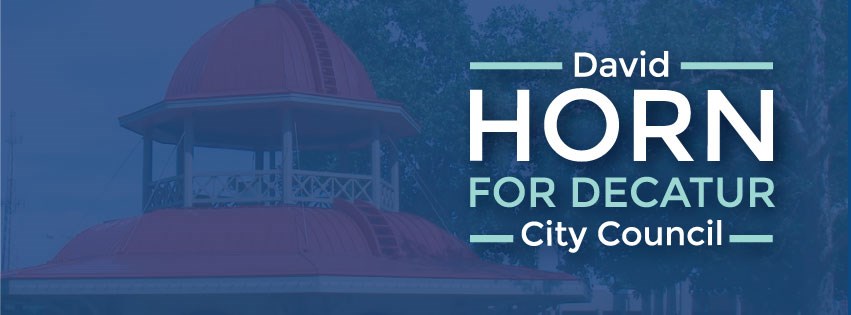
Water quality, public transportation, and overspending discussed at recent council meeting
The Decatur City Council will be voting on multiple water quality initiatives, approving agreements to expand public transportation into surrounding municipalities, and transferring money to the community revitalization fund to cover unanticipated demolitions at its next meeting on February 3. Below is additional information regarding these agenda items.
UPDATING WATER EMERGENCY RESPONSE PLAN
As required by the American Water Infrastructure Act of 2018, Decatur will be hiring a consultant to update its drinking water risk and resilience assessment and its emergency response plan. While both updates are required by law, the timing of these plans is fortuitous given that the city of Decatur has granted an easement to ADM Co. to sequester carbon dioxide under Lake Decatur since the plans were initially created. Multiple surface leaks, a subsurface leak, and deep underground CO2 leak have all occurred previously as a result of sequestration operations in other parts of the city. Thus, it is important for the city to have a plan of action if a CO2 leak takes place in Lake Decatur, the city’s primary drinking water source. At its September 16, 2024 meeting, the city council approved the Macon County Multi-Hazard Mitigation Plan which listed C02 leaks as a potential HAZMAT incident. I am unaware that the Water Production Division has looked into how a large CO2 leak will be mitigated at this point, and hopefully, the updating of these reports will serve as a catalyst for the city to take a more proactive approach to a threat highlighted in the Multi-Hazard Mitigation plan.
PROACTIVELY REDUCING LEVELS OF A CONTAMINANT IN DRINKING WATER
The City of Decatur is planning to take a proactive approach to reduce the level of total trihalomethanes or TTHMs in its drinking water. The city has never had a violation that the levels of TTHMs or other disinfection byproducts (DPBs) have exceeded government standards but has documented that the levels have been increasing in recent years. Thus, the city is proposing to spend $258,800 in order to study options to reduce the level of TTHMs in the drinking water before levels get too high, and depending on what the study concludes, may spend additional funds to implement the solution.
The city should be commended for taking a very different approach to TTHMs than it has with nitrates in the drinking water. Since the city of Decatur constructed its nitrate removal facility in 2002, the city has been in compliance with the United States Environmental Protection Agency's nitrate standard of 10 milligrams per liter (10 mg/L). However, since the federal nitrate standard of 10 mg/L was established in 1962, additional scientific research has found that stricter standards may be warranted. Because Decatur has a nitrate removal facility, the city has the opportunity to voluntarily adopt a stricter standard for drinking water, but declined to do so because of the additional estimated annual cost of approximately $70,000 per year.
The city's Water Production Division is to be celebrated for producing high-quality drinking water that is safe and in compliance with federal and state regulations. It is also to be congratulated for wanting to proactively reduce substances that pose health risks at lower levels than is required. Hopefully, the city will take the same approach with TTHMs with other substances such as nitrates. Of note, the nitrate removal facility can be used to reduce TTHMs and thus, the ultimate solution may be to use the facility to remove both substances.
EXPANDING PUBLIC TRANSPORTATION
Decatur, Forsyth, Mt. Zion, and Macon County will all have a single transit provider (Decatur Public Transit System) in the near future. This should increase connectivity across the county and its municipalities, provide all in the county with an affordable and reliable means of transportation, and increase economic growth for all. The agreements to be approved by the council enhance transportation options while protecting the city’s interest (i.e., city funds will be expended for operations inside the city, and county and village funds will be expended for operations outside the city, and the county and villages will provide funds for vehicle replacements). Hopefully, this collaboration will serve as a model for other shared projects in the future.
OVERSPENDING IN BUDGET
In two separate actions, the city council is likely to move $1.235 million from the Capital Projects Fund (which is an economic development contingency fund) to the Community Revitalization Fund to cover unanticipated demolitions that took place in 2024 (e.g., YWCA building and two former school buildings). The city council will then likely approve appropriating $1.6 million in excess spending of the 2024 budget from the Community Revitalization Fund.
While budget reconciliations are normal (there are 12 other funds that need to be reconciled including $950,000 to the police and fire pension funds), the reconciliation of the Community Revitalization Fund highlights that the city of Decatur may lack the budgetary internal controls necessary to prevent overspending in the first place. For example, would the council have voted to remove asbestos and demolish the YWCA building and two former school buildings had we known in advance that we had already spent the amount of money allocated for demolitions?
It is reasonable for council members to assume that when the council authorizes spending that the money it is authorizing to be spent is in the budget. This was not the case here. With a $96 million general fund in 2025, the city council spends an average of $4 million per meeting. Council members should expect that the amounts that are proposed to be spent are within the budget the council approved, and if not, the council should be offered information on how the budget is proposed to be reconciled before voting. It appears that the city’s current financial internal controls did not prevent overspending from occurring in 2024 and it is unclear what changes are being made to make 2025 any different.
